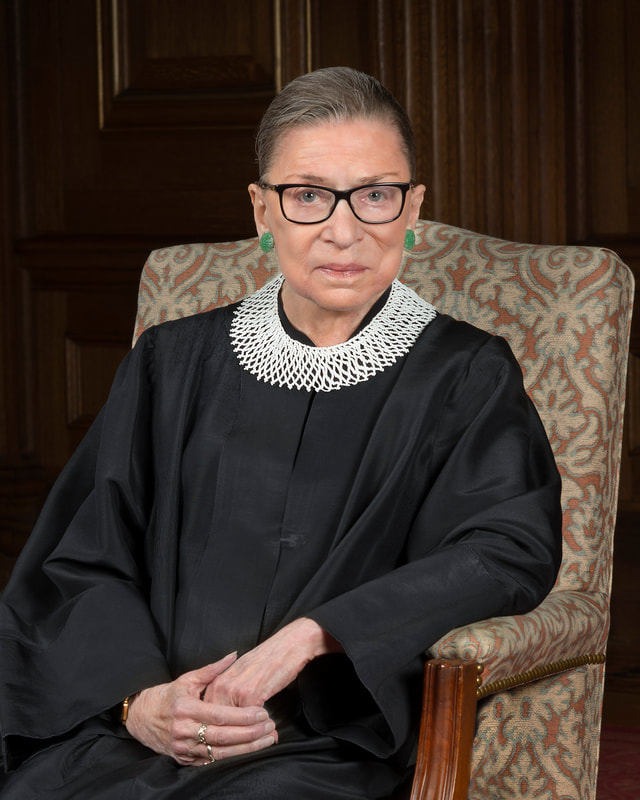|
by Anthony R. Green It is with sadness that we here at Castle of our Skins, along with so many in this world, are mourning the loss of a powerful advocate for equality, an intelligent woman, and a (perhaps unintentional) cultural icon, Justice Ruth Bader Ginsburg. It is impossible to sum up her hundreds of accomplishments and contributions to the world, but I'd like to mention one. At one point during an interview, Justice Ginsburg was asked when there would be enough women on the Supreme Court, and - without hesitation - she said, "When there are 9." She continued to eloquently mention how nobody questioned the moments when the SCOTUS was 100% male, and we, as a society, shouldn't question an all-female SCOTUS. (Amen!) Not only was Justice Ginsburg extremely correct in this observation, but such can and should be applied to concert programming as well. If it is "normal" to have recitals where 100% of the composers are white, then it should be "normal" to have concert programming where 100% of the composers are BILPOC. I'd like to take this a step further and apply this to entire concert seasons. I charge ANY ensemble leaders to take on this challenge. photo source: the Supreme Court of the United States Castle of our Skins is no stranger to supporting women's rights and gender equity. With our conscious efforts to support Black women in classical music and the arts, we have regularly featured women creators on our various platforms (including for our Founders Chat series, our BIBA Blog, and our Black Composer Miniature Challenge), we have shared Elizabeth A. Baker's powerful Ain't I A Woman Too? article for NewMusicBox, and we've curated an entire program dedicated to Black Femininity called Ain't I A Woman? With that, please enjoy a performance of "Love Let the Wind Cry ... How I Adore Thee" by the incredible Undine Smith Moore, and reflect on the greater meaning of this piece and this performance. The text is a translation of a poem by Sappho, an ancient Greek, female poet whose homosexuality is constantly being examined. The composer is a Black woman, whose work within the classical music field is significant, but whose works are not performed nearly as much as they should be. The performance is by two powerful women, representing cultural diversity and celebrating female power through music. Surely such projects are part of Justice Ginsburg's dream, and now it is up to us to continue this important work.
1 Comment
9/27/2020 08:30:52 pm
A stunning performance and tribute to Notorious RBG. I have also shared this quote about 9 female justices often these last few days, and love the idea of applying it to every field. Look, as soon as the world allows the telling of different kinds of stories by different kinds of voices art and life will be exponentially better.
Reply
Leave a Reply. |
Details
Writings, musings, photos, links, and videos about Black Artistry of ALL varieties!
Feel free to drop a comment or suggestion for posts! Archives
May 2024
|
Member Login
Black concert series and educational programs in Boston and beyond


 RSS Feed
RSS Feed










